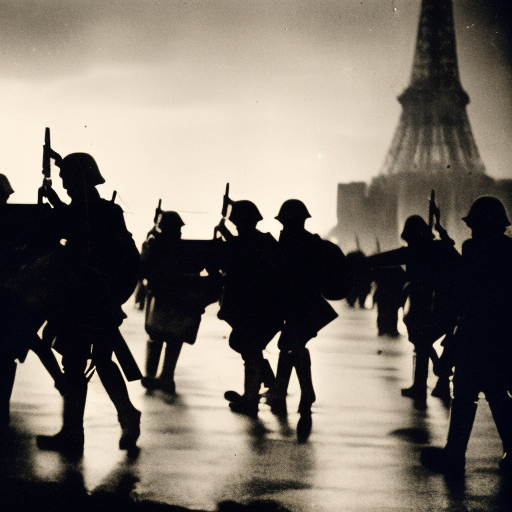Summary: War of the First Coalition
The War of the First Coalition was a conflict that took place from 1792 to 1797, involving a coalition of European powers led by Austria, Prussia, and Great Britain against the French First Republic. The war was sparked by the French Revolution and its radical ideals, which threatened the established order in Europe. The coalition aimed to restore the French monarchy and contain the spread of revolutionary ideas.
The war began with initial successes for the French, as they defeated the Austrians in several battles and invaded the Austrian Netherlands (modern-day Belgium). However, the coalition forces regrouped and launched a counteroffensive, pushing the French back and reclaiming lost territories. The conflict became a stalemate, with both sides struggling to gain a decisive advantage.
French Revolutionary Wars
The War of the First Coalition was part of the larger French Revolutionary Wars, a series of conflicts that engulfed Europe in the aftermath of the French Revolution. The French Revolutionary Wars marked a significant shift in warfare, as the French introduced mass conscription and popular nationalism, challenging the traditional aristocratic order.
Key Battles and Events
- Battle of Valmy (1792): The French army, led by General Charles Dumouriez, repelled an attack by the Prussian army, halting their advance towards Paris. This victory boosted French morale and demonstrated the effectiveness of their new revolutionary army.
- Invasion of the Austrian Netherlands (1792): The French successfully invaded the Austrian Netherlands, capturing major cities such as Brussels and Liège. This expansion alarmed the coalition and prompted them to launch a counteroffensive.
- War in the Vendée (1793-1796): While the main conflict raged in Europe, a counter-revolutionary uprising known as the War in the Vendée erupted in western France. The rebels, supported by the British, fought against the Republican government. The conflict was marked by brutal repression and atrocities committed by both sides.
- Battle of Fleurus (1794): The French army, under the command of General Jean-Baptiste Jourdan, defeated the Austrians in a decisive battle near Fleurus. This victory secured French control over the Austrian Netherlands and marked a turning point in the war.
- Treaty of Campo Formio (1797): The war ended with the signing of the Treaty of Campo Formio between France and Austria. The treaty recognized French control over the Austrian Netherlands and parts of Italy, while Austria gained territories in Germany.
Impact and Significance
The War of the First Coalition had far-reaching consequences for Europe. It marked the beginning of a series of conflicts that would last for over two decades and reshape the continent. The French Revolutionary Wars and the subsequent Napoleonic Wars brought about the downfall of the old European order, leading to the rise of Napoleon Bonaparte and the spread of revolutionary ideals.
The war also demonstrated the effectiveness of the French revolutionary army and its innovative tactics, such as mass conscription and the use of artillery. These military innovations would have a lasting impact on warfare in the 19th century.
Furthermore, the war highlighted the internal divisions within the coalition. Prussia withdrew from the conflict in 1795, and Spain joined the French side in 1796. This weakened the coalition and allowed France to negotiate a favorable peace with Austria.
In conclusion, the War of the First Coalition was a significant conflict that emerged from the French Revolution and its radical ideals. The war saw initial French successes, followed by a coalition counteroffensive. Key battles such as Valmy and Fleurus shaped the course of the conflict. The war ended with the Treaty of Campo Formio, which recognized French control over the Austrian Netherlands. The war’s impact was profound, setting the stage for future conflicts and the rise of Napoleon Bonaparte.












